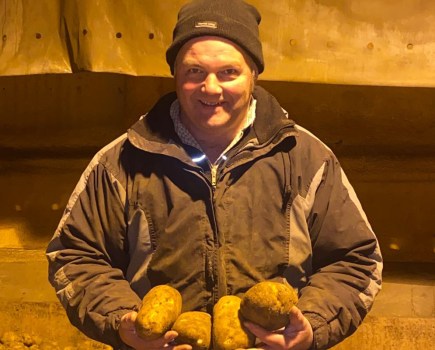 Mention genetic modification in conversation and the reaction will be divided. It’s as emotive as Brexit and no amount of cold, hard scientific reasoning is likely to change a reaction that’s innate in the people who would never choose to eat GM food. I’m one of those people.
Mention genetic modification in conversation and the reaction will be divided. It’s as emotive as Brexit and no amount of cold, hard scientific reasoning is likely to change a reaction that’s innate in the people who would never choose to eat GM food. I’m one of those people.
Recent consumer research seems to indicate there’s a softening in consumer attitudes towards GM food but not to the point where the majority are in favour of it. That’s in sharp contrast to a recent poll in the farming press that showed three-quarters of farmers would be happy to grow GM crops.
Another study at University of Nottingham surveyed different age groups and found that even biotech students weren’t necessarily using their science-trained brain when it came to their perceptions about GM. The majority of the public viewed GM food as unsafe and the study found that an information campaign from a trusted source would be needed if GM were ever to become acceptable to the majority. Government came out very low on the list of trusted sources.
For the sake of clarity, I’m not including gene editing under the GM banner. It’s not a technology I struggle with for the reason that it simply speeds up the process that breeders can achieve naturally. GM doesn’t follow the rules of nature, however.
To the scientist the DNA is simply a code. Change the code and you change the processes it governs. But DNA isn’t one-dimensional, a biological system is multi-dimensional and that raises possibilities of unintended consequences from introducing foreign genetic material and creating something that would never have otherwise evolved.
But GM foods are safe, they’ve been in the food system for a couple of decades now – this will be the declaration from Science. Perhaps it’s a case of how do you measure safety or turning it on its head, how do you measure harm? Do we know if the nectar tastes the same in open-pollinated GM crops? If a plant has been altered to bestow pest resistance, what are the knock-on effects of that change? How about the effect on microbiology in the rhizosphere and phyllosphere? Science only tells you the answer to the questions asked.
Is swapping reliance from one technology (pesticides) to reliance on another (genetics) a truly sustainable way to produce crops? The persuasion from Science will be a GM carrot of reduced production costs, lowered environmental impact because less pesticides are being applied, better quality crops and better utilisation of scarce resources, such as water.
But they giveth with one hand and taketh away with the other. GM crops tie the grower closer to the supply chain as a reliance on chemistry is transferred to a reliance on genetics or in the worst-case scenario, a reliance on a package of chemistry that goes with a package of genetics. All the while nature will be planning its revenge. In the place of the pest problem the genetics solved, another will take its place. That’s the dynamics of a biological system. The disease that was a problem solved will eventually evolve and surprise everyone with its ingenuity or a disease that was outcompeted, the lesser of two evils, will gain ascendance. That’s the dynamics of a biological system.
I’m a product of the chemical era – in my agronomy training the solution came from the can. I never fully subscribed to that way of thinking and have seen the cycle of innovation, resistance and withdrawal due to the realisation of unintended consequences. In my mind the solution lies in understanding plant biology and the way it interacts with the biology around it. With this knowledge, biology can be harnessed to work with biology to produce crops and not against it. The belief that GM will be the answer to the problems with food production is, in my opinion, deeply flawed.
Which leads me back to where I started – how people feel about the food they eat. At a time when food producers are threatened by potential trade deals that will undercut the home market with cheap, imported food that’s produced to lower standards, is GM a can of worms that’s worth the risk of taking the lid off? The customer is king so let’s not undermine the brand UK farming is fighting hard to build. We can do so much better than that and build on that hard-gained trust by adapting our farming systems to more sustainable methods without relying on a solution that’s engineered.
Based in Ludlow, Shrops, CPM technical editor Lucy de la Pasture has worked as an agronomist. @Lucy_delaP




